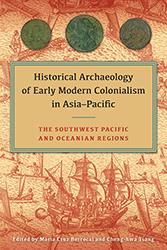Packed with archaeological and historical evidence from both land and underwater sites, impressive in geographical scope, and featuring perspectives of scholars from many different countries and traditions, these volumes illuminate the often misunderstood nature of early colonialism in Asia-Pacific.










